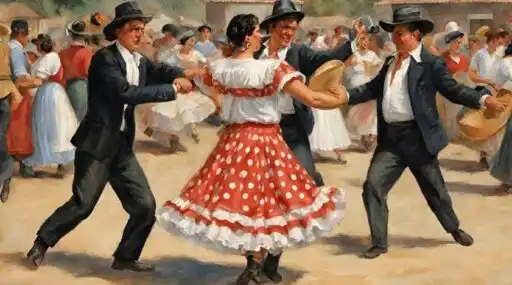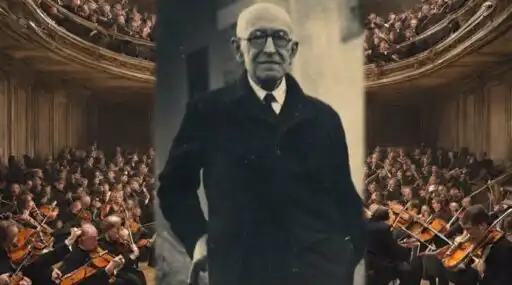Jorge Nasser, born on October 10, 1959, in Montevideo, Uruguay, is a renowned singer-songwriter known for his soulful voice, poignant lyrics, and evocative melodies. With a career spanning several decades, Nasser has established himself as one of Uruguay’s most respected and beloved musicians, captivating audiences with his heartfelt songs and profound insights into the human experience. This article offers an in-depth exploration of Jorge Nasser’s life and career, tracing his journey from humble beginnings to becoming a revered figure in Uruguay’s music scene.
Early Life and Musical Influences:
Jorge Nasser’s passion for music was ignited at a young age, inspired by the rich cultural heritage of Uruguay and the diverse array of musical influences that surrounded him. Growing up in Montevideo, Nasser was exposed to a wide range of genres, from traditional folk music to rock, jazz, and tango, all of which would later shape his own unique musical style.
As a teenager, Nasser began writing songs and performing at local venues, honing his craft and developing his distinctive voice as a songwriter and performer. Influenced by artists like Silvio Rodríguez, Joan Manuel Serrat, and Astor Piazzolla, Nasser’s music would come to reflect his deep appreciation for storytelling, poetry, and social commentary.
Rise to Prominence:
Jorge Nasser’s breakthrough came in the 1980s when he formed the band “Níquel” alongside fellow musicians Eduardo “Pacha” González and Eduardo “Pirulo” Yáñez. Together, they quickly gained recognition for their captivating live performances and insightful songwriting, earning them a devoted fan base and critical acclaim.
In 1986, Níquel released their debut album, “El Jugador,” which featured a mix of rock, pop, and folk influences. The album’s lead single, “Pensando en voz alta,” became an instant hit, propelling Níquel to stardom and establishing Nasser as a formidable talent in the Uruguayan music scene.
Solo Career and Artistic Evolution:
Following the success of Níquel, Jorge Nasser embarked on a solo career, eager to explore new musical territories and express himself as a songwriter and performer. His debut solo album, “Contra el Silencio” (1992), showcased Nasser’s introspective lyrics and soulful vocals, earning him widespread acclaim and further solidifying his reputation as a leading figure in Uruguayan music.
Subsequent albums, such as “Huellas” (1995) and “Noches de Luna” (1999), continued to showcase Nasser’s growth as an artist, with songs that explored themes of love, loss, and self-discovery. Tracks like “Luna Llena” and “Milonga por el camino” captivated audiences with their poignant lyrics and haunting melodies, earning Nasser a devoted following both at home and abroad.
Social Commentary and Activism:
Throughout his career, Jorge Nasser has used his music as a platform to address social and political issues facing Uruguay and the world at large. His songs are often imbued with a sense of social consciousness and a call for justice, reflecting Nasser’s commitment to using his art as a tool for change.
Tracks like “El peor de tus antojos” and “Por qué te vas?” confront themes of inequality, oppression, and environmental degradation, urging listeners to confront the injustices of the world and work towards a better future. Nasser’s lyrics are at once poetic and incisive, challenging listeners to reflect on their own role in shaping society and inspiring them to take action.
Collaborations and Influence:
Throughout his career, Jorge Nasser has collaborated with a diverse array of artists and musicians, both in Uruguay and abroad. His collaborations have spanned genres and generations, showcasing Nasser’s versatility as a performer and his ability to connect with artists from different musical backgrounds.
One of Nasser’s most notable collaborations was with Argentine singer-songwriter Fito Páez, with whom he recorded the album “Juntitos” (2002). Featuring a mix of original compositions and classic covers, the album highlighted Nasser and Páez’s mutual admiration for each other’s music and their shared commitment to artistic excellence.
Legacy and Impact:
Today, Jorge Nasser’s legacy looms large in the annals of Uruguayan music history, with his influence extending far beyond his own recordings. His soulful voice, poignant lyrics, and evocative melodies continue to inspire audiences around the world, reminding us of the transformative power of music to touch hearts, provoke thought, and ignite change.
As Uruguay celebrates its rich cultural heritage, Jorge Nasser stands as a shining example of artistic excellence and social consciousness. His music serves as a timeless reminder of the power of art to transcend boundaries, unite people, and give voice to the voiceless.
In conclusion, Jorge Nasser’s life and career are a testament to the enduring power of music to uplift, inspire, and transform lives. Through his soulful voice and poetic lyrics, he has touched the hearts of audiences around the world, leaving behind a legacy that will continue to resonate for generations to come.









































Leave a Reply